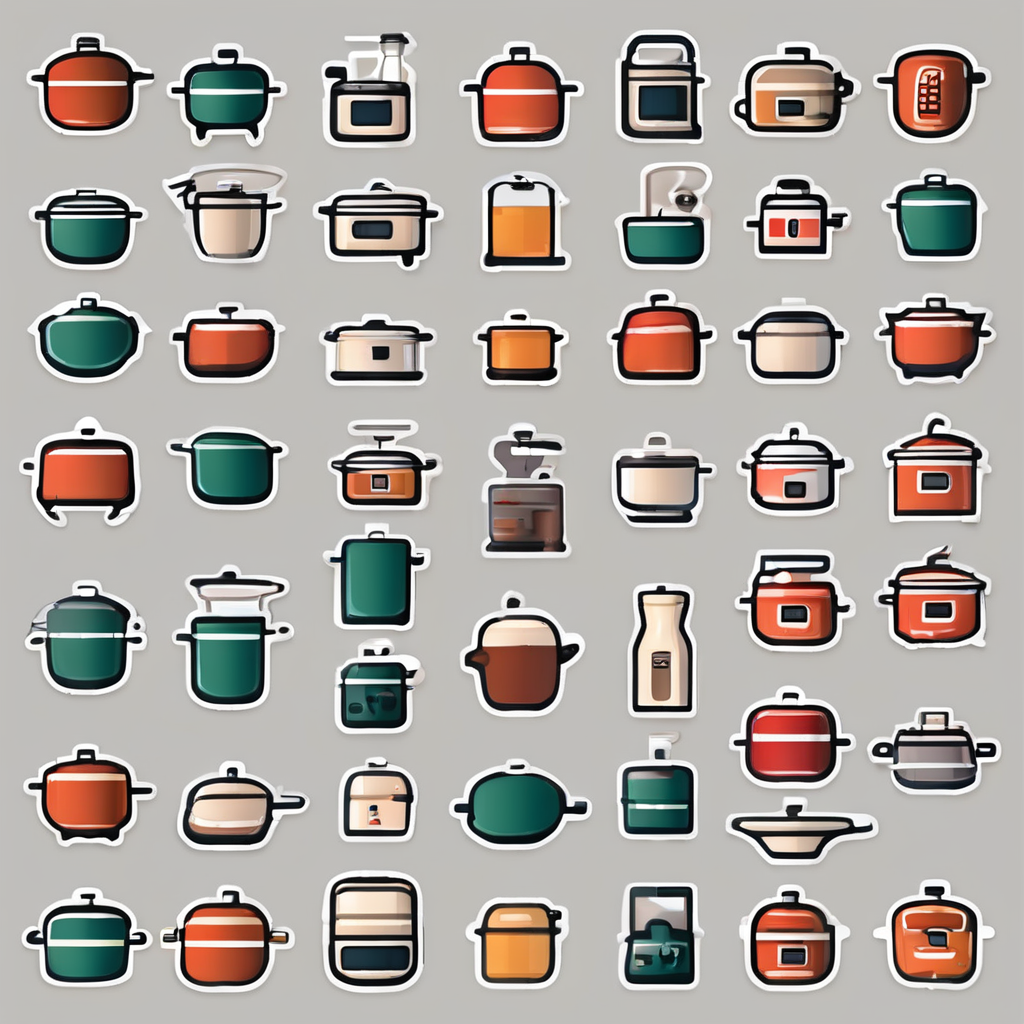Key Trends Driving Innovation in UK Kitchen Products
Innovation in UK kitchen innovation is currently fuelled by evolving consumer demands and lifestyle shifts. As busy lifestyles and health-conscious habits rise, kitchenware trends focus on convenience, versatility, and enhancing the cooking experience. This drives manufacturers to develop products that seamlessly blend functionality with style.
A prominent trend is the embrace of multi-functional kitchen gadgets that save time and space. Consumers seek appliances that perform several tasks, such as combining cooking and food preparation, fitting with smaller urban homes. Another important aspect is the push for improved user-friendly designs, making kitchen tools accessible for all skill levels.
Additional reading : What Are the Benefits of Choosing Eco-Friendly Kitchen Products in the UK?
UK manufacturers and designers lead in integrating these trends through cutting-edge materials and smart technology, guaranteeing a competitive edge. They are attentive to customer feedback and market behavior, innovating to meet environmental standards while offering high-quality performance.
In summary, kitchen product advancements in the UK revolve around smarter, adaptable, and eco-conscious designs shaped by lifestyle needs. This dynamic interaction between consumer preferences and industry responses continues to propel innovation, making UK kitchens both trendy and practical.
Have you seen this : What Are the Innovations Transforming UK Kitchen Products?
Smart Technology Integration in Kitchen Appliances
Exploring how connectivity transforms cooking
Smart kitchen appliances are revolutionising home cooking by combining traditional functions with IoT capabilities. These smart kitchen appliances often feature touchscreens, voice control, and remote monitoring, enhancing convenience and precision. For example, ovens that can be preheated via smartphone or refrigerators notifying users of expiry dates reflect smart technology integration.
In the UK, leading manufacturers prioritise seamless connectivity. The rise of the connected kitchen means devices communicate with apps, enabling users to control multiple tools from a single interface. This integration reduces effort and streamlines meal preparation, appealing to busy lifestyles.
Key benefits include energy efficiency, as smart sensors optimise appliance use, reducing waste. Moreover, real-time alerts and personalised cooking profiles cater to individual preferences, underscoring practical benefits beyond novelty.
Popular UK smart kitchen products include intelligent coffee makers and multi-cookers with Wi-Fi capability, reflecting manufacturer commitment to innovation. This technological shift also encourages adoption of sustainable usage patterns through app-guided energy management.
In essence, IoT in kitchenware leads to a more efficient, controlled, and enjoyable cooking experience, cementing smart appliances as a pivotal component of UK kitchen innovation and shaping future kitchenware trends.
Sustainable and Eco-Friendly Kitchen Products
Advancing greener kitchens with innovative materials
Sustainability in kitchenware has become a major focus in UK kitchen innovation, driven by consumer demand for responsible choices. Sustainable kitchen products prioritise recyclable and biodegradable materials such as bamboo, recycled plastics, and stainless steel, reducing environmental impact without sacrificing durability or design appeal.
Energy-efficient devices are also prominent in eco-friendly kitchenware trends. Many UK manufacturers offer appliances certified for lower energy consumption, combining performance with greener operation. This includes LED lighting in kitchen devices and induction cooktops that provide faster heating with less power use.
UK brands lead the way by integrating green materials into everyday items—cutlery, storage containers, and cookware—that showcase commitment to sustainability. These advancements align with broader environmental goals and consumer lifestyles that value reduced waste and energy conservation.
Familiar examples include compostable food storage wraps and solar-powered kitchen gadgets, which embody the shift toward eco-conscious living. These kitchen product advancements demonstrate how technology and design unite to support sustainability without compromising user experience.
In essence, sustainable innovations in UK kitchens are shaping a future where functionality, style, and environmental responsibility coexist seamlessly.
Modularity and Customisation in Modern Kitchen Design
Modular solutions tailor kitchens to evolving lifestyles
The rise of modular kitchen design in the UK addresses the growing demand for adaptable and space-efficient cooking environments. These systems consist of flexible, interchangeable units, allowing users to personalise layouts according to their home’s size and functional needs. This is particularly beneficial for small urban homes and renters, where permanent installations may not be practical.
Customisable kitchenware complements these modular designs by offering appliances and tools that can be configured or combined for specific tasks. For instance, detachable components such as adjustable shelving, removable storage bins, and clip-on cookware handles enhance versatility without cluttering the space.
UK manufacturers capitalise on this trend by developing flexible kitchen solutions that support easy upgrades and reconfiguration. Consumers appreciate the ability to adapt their kitchens as family size or cooking habits evolve, reinforcing sustainability by reducing the need for full replacements.
Additionally, modular designs often integrate seamlessly with other UK kitchen innovation trends, such as smart technology and sustainable materials. This holistic approach not only optimises usability but also ensures kitchen product advancements remain aligned with modern lifestyle changes.
Future Predictions for the UK Kitchen Product Market
Anticipating tomorrow’s kitchen innovations
Emerging technologies are set to profoundly impact UK kitchen innovation, driving fresh kitchen product advancements aligned with evolving lifestyles. One major trend forecasted is broader adoption of artificial intelligence in smart kitchen appliances. AI-powered devices could learn user habits to suggest recipes or automate cooking processes, enhancing convenience and reducing effort.
Another predicted shift involves greater integration of augmented reality (AR) and virtual reality (VR) for kitchen planning and education. These tools will allow consumers to visualise layouts or receive interactive cooking guidance, merging technology with practical daily use. This aligns with increasing consumer desire for personalised and engaging kitchen experiences.
Sustainability will remain a central theme in future kitchenware trends. Innovations are expected in biodegradable materials with improved durability and recycled composites enabling stylish yet eco-conscious designs. Energy efficiency will continue to improve through smarter sensors and adaptive power management.
Manufacturers will also focus on modular and customisable products pairing technology with flexibility. This approach caters to changing family structures and living arrangements, maximising usability.
In summary, future kitchen innovations in the UK will blend AI, AR, sustainability, and modularity—transforming cooking from a chore into a dynamic, tailored journey.

